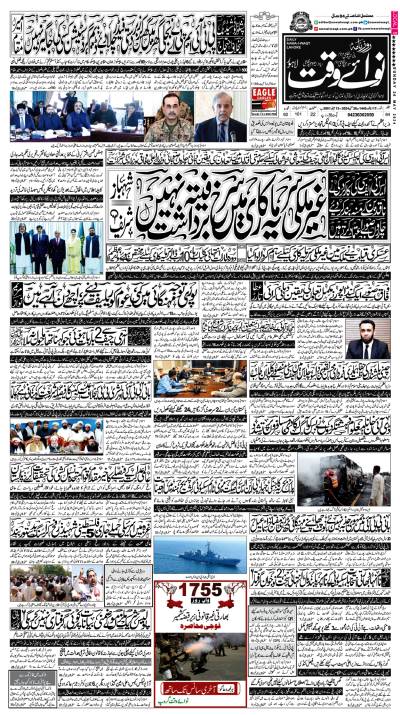There is a growing perception that all is not well with the system of governance in Pakistan since the February 18 general elections. Whether this feeling being expressed by the people as well as the media, is factually right or wrong is a different matter but perception is always stronger than the actual truth regarding any issue. In their frustration and overall dismay about the prevailing state of affairs, there are many who do not hesitate to assert that the country has no government worth the name. Others allude to the miracle of the land of the pure running without a government. In a dinner party last night, with many intellectuals participating, someone challenged the absence of an efficient government machinery by raising a very serious query: if there was no government machinery in place in Pakistan, who, in God's name, is issuing dozens of directives and scores of notifications daily by way of raising the salaries and allowances of members of provincial and national assemblies as well as shooting up the price of petrol, gas and electricity along with hundreds of items of daily use. The military, has no longer any say in the affairs of the state. Army Chief General Ashfaq Parvez Kayani has made a categorical statement about the supremacy of the civil authority and the armed forces to henceforth perform only such tasks as signed by the government. This new role was recently pledged by the three services chiefs in a meeting presided over by the Chairman Joint Chiefs of Staff Committee Gen. Tariq Majid. On the political side, there is a coalition in place comprising PPP, PML(N), ANP and the JUI. The new elected parliament, which came into place as a result of general elections unanimously elected Yousaf Raza Gilani as PM and Ch. Pervaiz Elahi as leader of the opposition in the national assembly. President Pervaiz Musharraf, having been confined to his constitutional role, there should be little room for complaint about the parliament being hindered from exercising its independent and sovereign role or the Prime Minister being only a figurehead. Why do we forget that the Prime Minister of the largest majority in the world namely India, follows the same principle by seeking advise of his party president Sonia Ghandi on major policy decisions. Why then is Pakistan accused of having no government. Instead of consolidation the coalition seems to break up because of growing rift between its two major partners, the PPP and the PML(N), who do not see eye to eye on many issues, the top two, being the reinstatement of the deposed judges and General Musharraf's future. The federal government unfortunately has been crippled after the PML(N) withdrew its ministers from the cabinet. It is reported that the PPP leadership, which recently met at Dubai has taken a decision to fill the Ministries vacated by the PML-N by other members of the federal coalition, unless the PML-N ministers resume their posts by the end of July or any suitable date in the near future. This will indeed prove helpful to improve the present state of affairs but not really resolve the basic differences without a change of mindset and a more solid resolve to make the present coalition a real success. Without this joint resolution, the real challenges facing Pakistan cannot be resolved. The sooner the ruling leadership realises this ground reality, the better it would be for the coalition and even more important for the future of the Islamic Republic of Pakistan as well as for democracy. The writer is a retired lieutenant colonel E-mail: ikramullah@nation.com.pk
Sunday, May 26, 2024
Hazards of a split mandate
The writer is President of the Pakistan National Forum.
Petrol prices likely to drop further from June 1
9:55 PM | May 26, 2024
Mercury soars to 50 Celsius in five districts of Sindh and Punjab
3:41 PM | May 26, 2024
PTI leader Dr. Yasmin Rashid discharged from hospital
3:31 PM | May 26, 2024
Pakistan Sports Festival concluded
2:01 PM | May 26, 2024
PM reaffirms Pakistan's commitment to 'One China' policy
1:14 PM | May 26, 2024
Taiwan Escalation
May 26, 2024
Salaries & Pensions
May 26, 2024
Controlling Mobs
May 26, 2024
An Effective Registry
May 25, 2024
Economic Respite
May 25, 2024
History’s Biggest Fraud
May 26, 2024
Self-Medication
May 26, 2024
A Call for Reform
May 26, 2024
Natural Resources in Balochistan
May 25, 2024
Tribal Disputes
May 25, 2024
ePaper - Nawaiwaqt
Advertisement
Nawaiwaqt Group | Copyright © 2024





